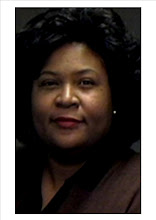
by J. Michael Sharman, Contributing Writer
The BBC News reported President Obama’s May 8, 2009 announcement that he will travel to Egypt on June 4th in order to “make a major speech on ties with Muslims”. They quoted White House Press Secretary Robert Gibbs as stating, “This is a continuing effort of the president to engage the Muslim world.”
The timing of the trip’s announcement came, ironically, the day after President Obama became the first president to neither attend or send a representative to attend a National Day of Prayer observance since Congress set the annual date of observance in 1988.
The United States Code, Title 36, Section 119 mandates that: “The President shall issue each year a proclamation designating the first Thursday in May as a National Day of Prayer on which the people of the United States may turn to God in prayer and meditation at churches, in groups, and as individuals.” Because of the word “shall” in that law, the president has no choice but to annually issue the proclamation.
Although he did not release it until the afternoon of May 7th, President Obama eventually did issue a proclamation, stating: “I call upon Americans to pray in thanksgiving for our freedoms and blessings and to ask for God's continued guidance, grace, and protection for this land that we love.”
As Rep. Randy Forbes (R-Va.) was leaving Capitol Hill’s own May 7th prayer observance at the Cannon House Office Building, he was asked by the press to comment on the combined impact of Mr. Obama’s failure to have any representative there and Mr. Obama’s statement in Ankara, Turkey on April 6th that “we do not consider ourselves a Christian nation or a Jewish nation or a Muslim nation”
“I would suggest,” said Rep. Forbes, “that there were two questions needed to be asked and answered that he missed. The first one was whether or not we ever were a Judeo-Christian nation, and the second one is if we were, when is that moment in time he can point to that we ceased to be so.”
Many of our former presidents have definitively answered the first question.
In the War of 1812, President Madison proclaimed “a day of public humiliation and prayer” so that “the eyes of all be turned to that Almighty Power in whose hand are the welfare and the destiny of nations.”
In the decade following the first World War, President Coolidge said: “Our government rests upon religion. It is from that source that we derive our reverence for truth and justice, for equality and liberty, and for the rights of mankind. Unless the people believe in these principles they cannot believe in our government.”
In the first decade of the 20th century, President Taft told Congress we should use our naval power to “give weight to our influence in those directions of progress that a powerful Christian nation should advocate.”
Two years after WWII, President Truman declared: “As a Christian Nation our earnest desire is to work with men of good will everywhere to banish war and the causes of war from the world whose Creator desired that men of every race and in every clime should live together in peace, good will and mutual trust.”
As the pressure for his impeachment rose, President Clinton issued his Easter Message to the nation, declaring: “As Saint John's Gospel so eloquently reminds us, ‘. . . God sent not his Son into the world to condemn the world; but that the world through him might be saved.’”
Even now, on every piece of legislation signed by President Obama, his own signature has affirmed that we are still a Christian nation, stating: “In witness whereof, I have hereunto set my hand, in the year of our Lord two thousand nine.”
Perhaps the most important message that President Obama can take to the Muslim world is that from the beginning of our nation to the present, “our Lord” was and still now is, Jesus Christ, the Lord of lords.
--END--



